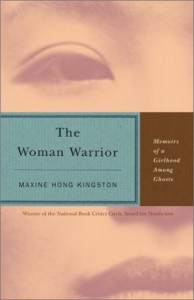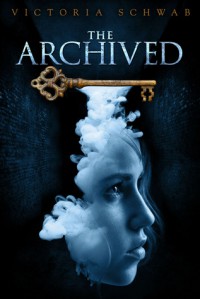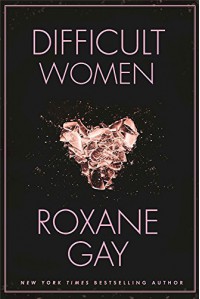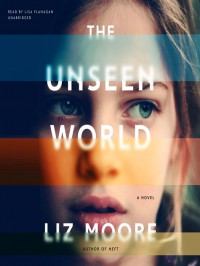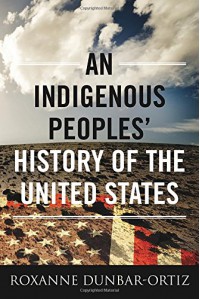In the world of memoirs, this one was a little difficult for me to rate. I was confused for a decent portion of it, not sure whether this was fiction or nonfiction at times. I had chosen it as part of the Read Harder Challenge for this year, task 17: read a classic by a woman of color. I suppose I could have counted Kindred but I didn't realize that it was written in 1979 until I was actually reading it and had already listed this memoir as my option for the challenge. Besides, I prefer using nonfiction for challenges anyway.
That said, I did eventually wander back over to the Goodreads and Amazon pages for this book and get it figured out.
As a whole, the book really was an amazing look into being the first US-born children of Chinese immigrants. There are flavors to the story that are familiar with my own experience of being the first US-born generation in my family too. The stories from where the family is from that don't make quite make sense in the US and the feeling of having lost so much in the migration are things that I grew up with too. I could relate to it without feeling like I already knew what was going to happen.
Here is a little bit about each story:
No Name Woman - this is the story of an aunt of Kingston's who had died back in China. She had been scorned for becoming pregnant while her husband was away and the entire family was forced to deal with the aftermath. Her mother told her of the story as a morality tale but Kingston also offers quite a bit of introspection about what it must have been like to be her aunt and what it must have been like to be a woman in China under those circumstances. She decomposes the story a bit too, rooting through for wholes in her mother's account. Set in China, it is one of the stories that showcase her heritage and the way that heritage can continue to effect even those of us not born in those countries.
White Tigers - this is the one that totally threw me for a loop. It's also written in the introspective memoir style but is actually one of the "talk stories" her mother told her and is delivered in the first person. I was so confused and kept looking at the info to make sure that this was definitely listed as non-fiction. I don't know, maybe I was just not paying an adequate amount of attention to catch it at the time because I hadn't realized from the last story that she wasn't even born in China and the entire story also takes place there. It's a great story and one that I understand her being captivated by, but it isn't her story nor does it appear to be based on one of her ancestors.
Shaman - I think this was my favorite. I love the idea of women making a great situation out of something that begins less than favorable. This takes place before Kingston is born and is about her mother deciding to be a doctor in China while her father is in the US making money. He makes more than enough to send home and for the mom to be comfortable at home, but she wants to do more with the money. Not only can I appreciate that sentiment but the very idea of going back to school after so long and how she becomes a great doctor are intriguing and uplifting.
At the Western Palace - I just love her mother so much. I get how it may have been a little hard to live her sometimes, but I love her attitude about things. My mother was much the same way. Go get what's yours. Don't take an unnecessary amount of crap from people. If life disappoints you, figure it out and move on. This story isn't actually about her mother, it's about an aunt but her mother is the larger image in it. She brings the aunt to the US after her husband never asks her to and then there's a some drama about the husband and the story is told from the point of view of Kingston herself who is just a little too young to really understand what's happening.
She understands, but doesn't grasp the gravity of the situation. She doesn't understand why it's such a big deal for the aunt and why she is so timid and so broken. Still, she gives the reader enough to see it and to feel for her aunt while also giving us a feeling of how alone she must have been with the rest of the family not understanding her. It says a lot about how culture does or does not migrate with the people who come from it.
A Song for a Barbarian Reed Pipe - finally we get to Kingston's own story. I did appreciate her story being the last once I understood the format because I can also understand the people around her. It would have been like reading the New Testament of the Bible without reading the Old Testament first, or even know what the Ten Commandments were. Her family and the other Chinese around her would have made less sense. I was a little horrified in the scene with the silent girl but kids can be cruel. On the other hand, I loved everything that came after her yelling at her parents to not marry her off. I cracked up at her mother's response to that.
I had looked over some other reviews when I was trying to figure out what was going on and it seems like this is generally a love it or hate it kind of book. I loved each story and would have loved for it to be advertised more as a collection of personal stories or life stories from a single person. It does paint a good overall picture of what the experience can be like to migrate to the US from China in that timeframe. It can be hard to remember what the threat of communism was like then and how countries that were engrossed with it treated their people. I am just old enough to remember seeing coverage of the Berlin Wall going down. I am also the first US born of people who came here to escape the devastating effects of communism. It's hard to explain to the younger generation now just what it meant. For that, I will endlessly appreciate this book and that it appears to have been brought into American literature classes.
Not only is the book about figuring out culture and heritage and what it means to live somewhere that you don't share the heritage, but it's also entirely about relationships among women. It's about her unnamed aunt and society and the ways that she is allowed to be remembered or not. It's about her relationship with her mother, her relationship to other Chinese children, her mother's relationship with both her own sister and her niece, her relationship to the legends of past Chinese women and the hopes of Chinese women contemporary to her.
There is one tiny problem though, and it's pointed out by almost every single person who I saw that didn't like this book. She does have a way of generalizing the Chinese. I get it, though, because I have generalized Cubans. I actually had to be taught to not do it by people like Chimamanda Ngozi Adichie and the danger of a single story. I had lumped all Cubans into a single version of the refugee story and that's just grossly untrue. Likewise, Kingston makes it sound like all Chinese do this or that or don't do this or that.
But then again, this was written well before my time. I also recognize that there have been times in the US when it was hard to set a people behind unifying themes and ideas. I recognize that there have been times when it has been necessary to make distinctions that WE are like this and not that. Perhaps that was a part of the intended purposes of all those generalizations. Perhaps, it was important to Kingston to make a claim on what is or can be Chinese vice what is or can be Asian as a whole or vice what is or can be any other group. I don't know.






